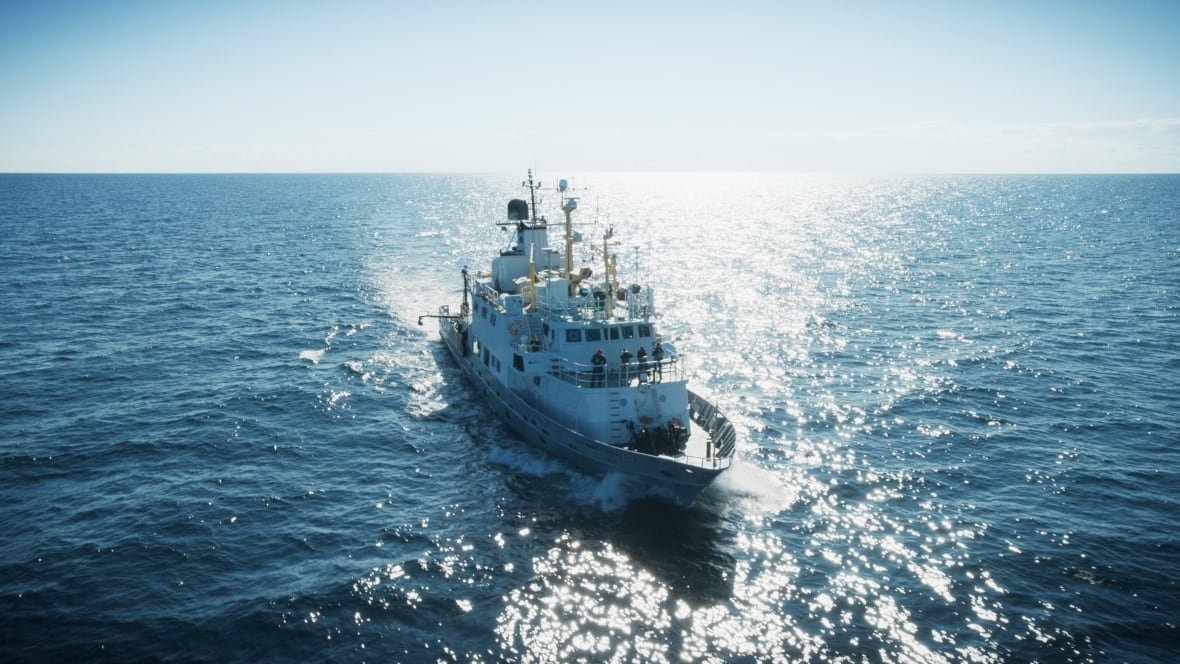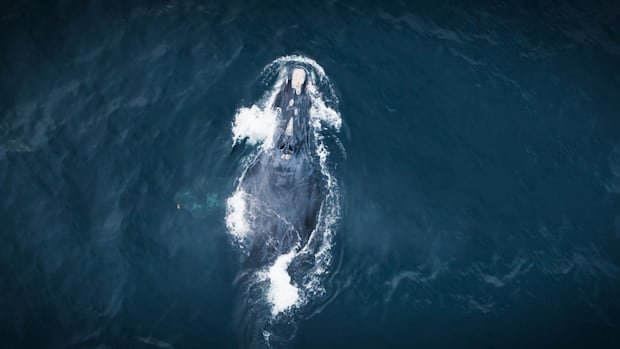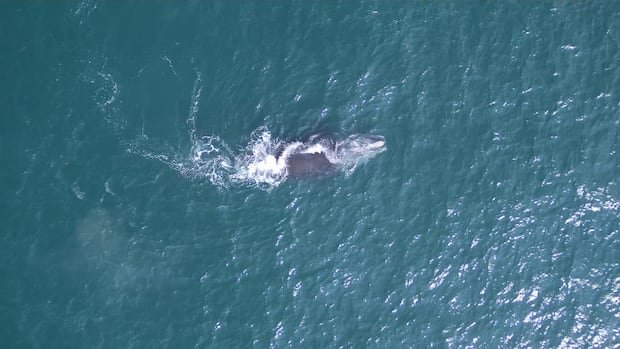A pair of researchers from the University of New Brunswick are gearing up for another expedition into the Gulf of St. Lawrence this week to investigate the endangered North Atlantic right whales.
Coincidentally, their expedition aligns with the debut of an Apple TV+ documentary series showcasing six of the world’s most endangered animals.
Kim Davies, an associate professor specializing in biological sciences, contributed to the segment focusing on right whales.
Davies remarked that the production they collaborated on last year was the most extensive she had ever been a part of.

The Wild Ones features episodes dedicated to Malayan tigers, Gobi bears, Javan rhinos, Caucasian leopards, western lowland gorillas, and North Atlantic right whales.
The series, produced by Offspring Films based in the U.K., premiered on July 11.
Davies leads a research initiative focusing on the right whales that populate the waters of New Brunswick during the spring, summer, and fall.
According to Davies, the North Atlantic right whale population currently stands at around 350 individuals, with a scarcity of reproducing females, substantially below the target for recovery.

The team embarks on annual research projects, and they have recently incorporated new technology involving drones to tag the whales.
Davies explained that the drones will hover above a whale and attach the tag, which will then adhere to the whale through suction. These tags are equipped with cameras, enabling underwater filming.
The film crew of The Wild Ones participated in last year’s expedition, filming from their own vessel and later joining the researchers on Davies’s boat during the tagging process to capture underwater perspectives.
She stated, “The underwater footage showcasing the whale’s perspective in the documentary will be the contribution of our research program.”
Researchers from the University of New Brunswick and Dalhousie University played a role in a new Apple TV+ documentary series focusing on the world’s



